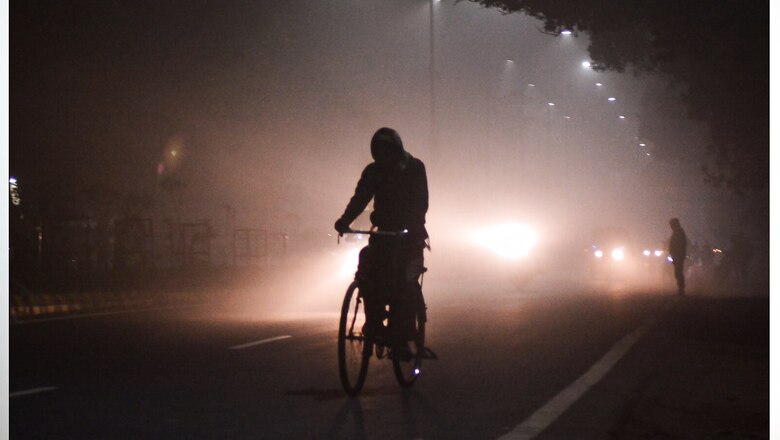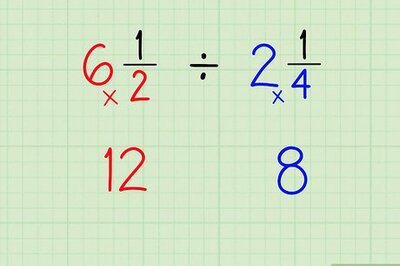
views
Overcast conditions are expected to continue in the national capital where the minimum temperature settled at 12.8 degrees Celsius on Thursday, the highest this month so far, the weather department said.
The maximum temperature settled at 17.3 degrees Celsius, five notches below the season’s average, it said.
A fresh western disturbance may lead to light rainfall on January 29, the India Meteorological Department (IMD) said.
According to the data by the Central Pollution Control Board (CPCB), the overall Air Quality Index (AQI) at 7 pm stood at 297 (poor category). An AQI between zero and 50 is considered ‘good’, 51 and 100 ‘satisfactory’, 101 and 200 ‘moderate’, 201 and 300 ‘poor’, 301 and 400 ‘very poor’, and 401 and 500 ‘severe’.
Mahesh Palawat of Skymet Weather Services said there may be a drop in the minimum temperature in Delhi in the next two days.
“As predicted, today’s maximum temperature declined by about 4 degrees. While the maximum temperature on January 25 was 21.6 degree Celsius, today it settled at 17.3 degrees Celsius. The minimum temperature was 12.8. There may be a drop in the minimum temperature in the next two days,” he said.
Some parts of the national capital reported shallow fog on Thursday. Cloudy weather in Delhi due to a western disturbance affecting northwest India has kept the minimum temperature within comfortable levels for around a week. Clouds trap heat that gets through during the day, keeping night-time temperatures above normal. However, cloudy weather reduces daytime temperatures by preventing exposure to the sun.
The city has not recorded any rainfall this winter season so far. The meteorological department attributed it to the lack of strong western disturbances in November and December.
Last year, the city had recorded 82.2 mm rainfall in January, the highest in the month since 1901.
The national capital logged eight cold wave days in January this year, the most in the month in 15 years. It saw seven cold wave days in January 2020 while it did not record any such day last year.
The city recorded two intense cold wave spells — from January 16 to January 18 and January 5 to 9, according to IMD data. It, however, did not record any cold days.
Delhi has also logged over 50 hours of dense fog this month so far, the highest since 2019.
Read all the Latest India News here




















Comments
0 comment